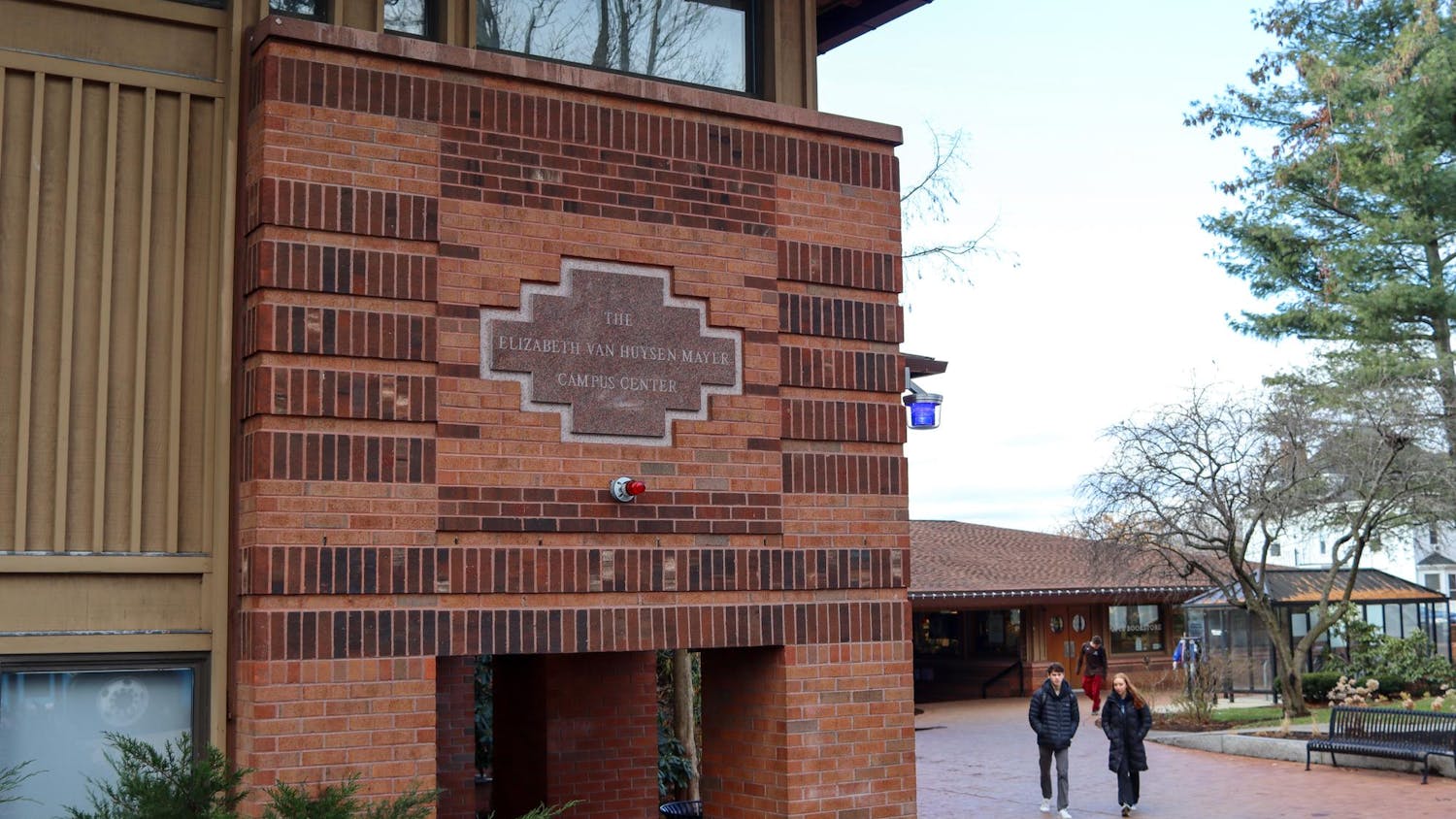Experts discussed renewable energy infrastructure in front of a capacity crowd in the Sophia Gordon Multipurpose Room during Saturday's Fourth Annual Tufts Energy Conference.
The conference, hosted by the Tufts Energy Forum (TEF) and entitled "Global Green Infrastructure: Powering the 21st Century," addressed the world energy infrastructure -- the grids that deliver electricity from power plants to users everywhere.
While the grids are still functional in their current state, they are outdated and ill-equipped to face the current challenges presented by climate change, according to Conference Logistics Coordinator Adam Fischer.
"The way that energy is created and distributed is extremely unpractical and unsustainable," Fischer, a sophomore, said. "Dirty oil and coal are the foundation for our energy infrastructure ... New systems have to be created that are based on clean, renewable technology that generates and distributes energy where it is needed."
The conference consisted of three panels and three keynote speakers. The first panel, entitled "Innovation and Diffusion of New Infrastructure Technologies," took on sustainability from scientific, political and economic angles.
Philip Giudice, the commissioner of the Massachusetts Department of Energy Resources, was among the panelists and spoke about the Bay State's executive and legislative efforts to invest in cleaner technologies and improve infrastructure efficiency. Giudice also addressed how the Obama administration is affecting local political and environmental policies.
After the opening panel, Peter Droege, a regional chairman of the World Council for Renewable Energy, delivered the first keynote presentation. Droege was in Zurich, Switzerland during the event and spoke via a videoconference.
The second panel focused on the energy infrastructure in the United States and featured representatives from Northeast Utilities, the Union of Concerned Scientists and A123 Systems, a high-tech battery manufacturer that is working with several automotive companies on plug-in hybrid projects.
The second keynote was perhaps the most interesting and important for Tufts students who face uncertain work prospects after graduation.
Gregg Dixon, the senior vice president of sales and business development for EnerNOC, told the audience that his company is enthusiastic about recruiting passionate students.
EnerNOC works to provide clean energy and help clients increase efficiency, and Dixon pointed out alternate strategies can both help the environment and save consumers money.
"We go out of the way to save a buck or two on our [cell phone] bills, but we spend three times that on energy -- why is that?" Dixon asked.
Dixon touted the relationship between EnerNOC and Tufts -- the university is itself a customer of EnerNOC, and 10 Tufts graduates are among the company's 335 employees.
Following a panel on powering the developing world, Mindy Lubber, the closing keynote speaker, called for immediate action at all levels of the global warming crisis.
Lubber, the president of the Coalition for Environmentally Responsible Economies, spoke to the need for communities worldwide to combat the problem of climate change together. "I can think of few things more important ... for the next five years than saving our planet from absolute destruction," she said.
Lubber singled out college students as a necessary component of the solution. "We need students graduating who understand this stuff, who are prepared to build the new economy that we need," she said.
But despite the gravity of the crisis, Lubber stressed her own prevailing optimism. "It's not going to be easy, but I feel like we'll get there, partially because of the conversations I've had with students around the world," she said.
Senior Alex Clough and junior Peter O'Regan, the conference's co-chairs, said they were pleased with how the daylong event ran.
"I feel really proud of what we put together in making this happen. Everyone did such a great job," said Clough, who added that he hopes participating students will be motivated to consider working in the energy sector.
O'Regan noted that attendance was up from last year and attributed the increased interest to a mounting focus on sustainable energy infrastructure.
"As the world becomes more interested and more aware of the importance of the energy industry and energy efficiency, you get a greater amount of interest. We're hoping we can build off that," he said.





